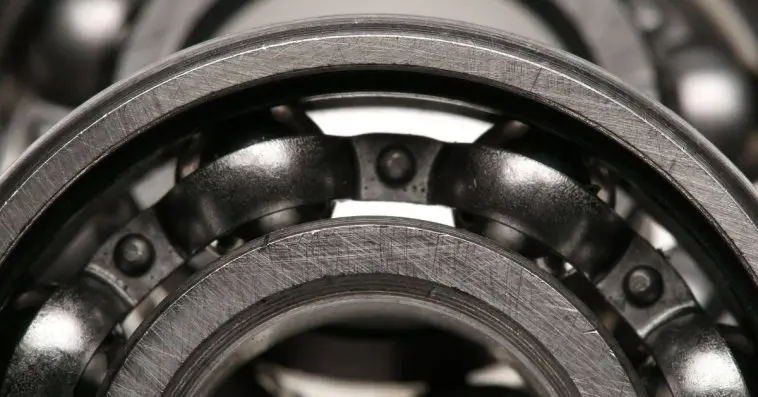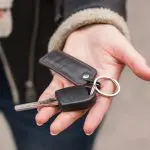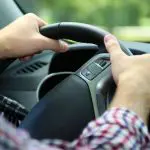Every car needs a set of good tires; However, behind it is a complex assembly of parts that work together to keep your vehicle running smoothly.
One such aspect is the wheel bearing, which plays a critical role in enabling the wheels to work together. When they fail, you begin to hear a noise, which in most cases the only indication.
But, how long will a wheel bearing last after it starts making noise?
Can a vehicle keep going even after hearing noises from the wheel bearing? You can go about 1000-1500 miles before it will give up on you and fail, which means it is a danger to yourself and others until then. You should get to a mechanic as soon as possible.
While I did specify the miles, it is not the same for every car. It depends on driving conditions, form, mileage, etc.
Hence, it is necessary that you know the warning signs of a bad bearing, symptoms, and its impact on the vehicle.
TABLE OF CONTENTS
Driving With A Bad Wheel Bearing
Let me start by asking you, how long do wheel bearings last? Wheel bearings have an average lifespan of about 100,000 miles and even more, depending on how you maintain your vehicle.
So if your car has a pretty impressive mileage, you might want to be attuned for weird and mysterious noises as they can be an indication of failing parts.
What Happens When You Drive?
For such a small and inconsequential part of a car, the wheel bearings are a nightmare for every driver. A bad wheel bearing can affect the durability of the tires and account for a rough, bumpy ride.
It can compromise your safety and also that of the other people on the road.
The reason is that your vehicle would neither be as smooth nor as responsive as you expect it to be.
Your tires take the brunt of the road and driving conditions and often have the first symptoms of wear and tear, albeit uniformly to an extent.
The wear is uneven and much faster with failing bearing than in normal conditions since the damaged wheel bearing puts an undue amount of pressure on the tire, hub, CV joint, and even the transmission.
And in the worst cases, the wheel might fall off the assembly when driving.
How Long Can Your Drive?
Noisy and failing wheel bearing is not a thing to be ignored, and you should have your mechanic at the first possible moment.
Saying this, it is not viable at all times; hence here’s how you can handle your car until you can reach safety.
Do you hear a loud noise coming from the vehicle? A slight echoing or a humming sound may be.
You should be able to identify it clearly if you are accustomed to the sounds coming from the back of your car. If it is a bad bearing, the noise should increase with every kilometer.
The absence of lubrication on the worn-out bearing is the reason for these noises.
And due to this, it becomes unbearably hot when the car picks up speed. The overheated bearing affects the wheel adversely, which can, in turn, be wobbly.
To prevent this, avoid speeding; drive slowly and keep coasting at 40 mph steadily.
Keep an ear out for the wheel bearing noise; Assuming it reduces, maintain the speed until you get to safety or at a service center.
If you drive harshly or pick up the pace, the chances are that the car lose control.
You might also want to remember that a chopped tire also makes the same sound like that of a failing ball bearing.
Again, the noise also increases with speed. So, it’s up to you to decide at this point.
What Causes The Wheel Bearing To Fail?
The other day a friend of mine who also had the same issue posed the question: what causes wheel bearings to go bad?
It never goes out on its own, even with old age; it is a mixture of a few issues which ultimately culminate in the wheel bearing going bad.
1. Water Damage
It is an understatement when I say wheel bearings do not like water.
They come lubricated with a petroleum-based lubricant, which doesn’t take well to water. If you drive on a flooded street, they do not have any seals that prevent water from entering the system.
When water damage happens, the lubrication may not exist anymore to protect the bearing. In this case, it is better to get your wheel bearings changed to avoid further repair.
2. Bad Driving Conditions
When on the road, your wheel bearings are always under excessive pressure.
It is even worse if the road is uneven and filled with potholes. This terrain can damage the wheel bearings and cause it to fail eventually.
The bearings can develop dents and cracks, which subsequently cause them even to break. When this happens, they lose the ability to reduce friction, causing undue damage to the wheel.
3. Accident
Accidents happen, and sometimes you cannot avoid them. But what you can do about it is evaluate your vehicle and check if everything is in the right working order, especially the wheels.
This is because if your wheels were even dented to the slightest degree, it might impact the wheel bearings, causing them to make those noises.
Any mechanic worth his/her salt should know this and replace your wheel bearings even before making those noises.
4. Poor Installation
If your new wheel bearing is making noises, you might want to consider the fact that they have not been installed correctly.
It can be the mechanic’s fault, or it can also be due to him installing the wrong bearings. Whatever it is, do not delay; take it back and get it fixed.
If you wait, you might have to bear the cost of the next set of bearings too.
5. Unbalanced Tires
A regular maintenance routine is crucial for any car. And balancing the tires should be a part of it.
When they are not balanced, it can cause a few wheel bearing to take more pressure and stress than the others.
Not only do they wear out faster, but they also affect the tires. Always make sure that your wheels are balanced as part of your service.
Diagnose Bad Wheel Bearing Noises
When it comes to any vehicle, you may hear noises at any point in time, even more so when in the case of older cars. It may be the engine noise, loose metal parts, etc.
But the critical aspect of being a driver is to have the ability to distinguish between the many noises.
Here are a few noises that can be attributed to a bad bearing.
- Humming: A humming noise is caused by various factors of which the tires, wheel bearing, and CB Joint are the most important reasons.
- Growling and Squealing: The telltale sounds made by bad wheel bearings is a cyclic chirping sound accompanied by a growling or/and a squealing noise. It increases with speed and can get worse. Sometimes it momentarily disappears before returning.
- Howling Noise: You can hear a howling noise for various reasons. When it happens only during deceleration, it may be a disconnected pinion-bearing. If it changes under different speeds, it may be due to the frayed gears.
- Grinding Noise: You can hear a grinding noise when the wheel bearing loses its lubrication. While sounding similar to meal pieces rubbing against each other, the noise should come from the wheel where the bearing is creating trouble.
FAQs
Q1. Can A Bad Wheel Bearing Make My Tire Fall Off?
No, it doesn’t. While failing wheel bearings affect the tires and cause the car to lose control, it doesn’t cause the wheel to fall off.
The wheel is retained on the axle, and the bearing has nothing to do with it.
Q2. How Expensive Is It To Replace A Wheel Bearing?
The front wheel bearing should cost you anywhere from $260-$480, in which the parts cost you approximately $120-$200 while the labor is the rest.
When it comes to rear wheel bearings, they are more expensive, costing you $400-$800 since you have to replace the entire hub assembly.
Q3. How Do I Know When My Wheel Bearing Is Bad?
The noisy wheel bearing is probably the first sign when it is failing. The rest, like uneven tires and rough rides, come later on. Here are a few indicators for a failing wheel bearing.
- Grinding noise
- Clinking, snapping, and popping sounds
- Vibration felt in steering wheels
- Car pulls to one side
- Wobbly wheels
Conclusion
The wheel bearing, as small it is, plays a crucial role in the wheel assembly. Wear and tear and other circumstances cause it to fail after a few years on the run.
The first indication is the noise, which manifests in humming, squealing, or groaning sound, increasing with speed.
While you can go a thousand more miles, it can turn dangerous for everyone on the road.
A bad bearing can also cause uneven tires, issues with brakes, steering wheel vibration, and wobbly wheels at the worst.
If you feel or hear any of the above, have your mechanic check your car before running into more issues.




